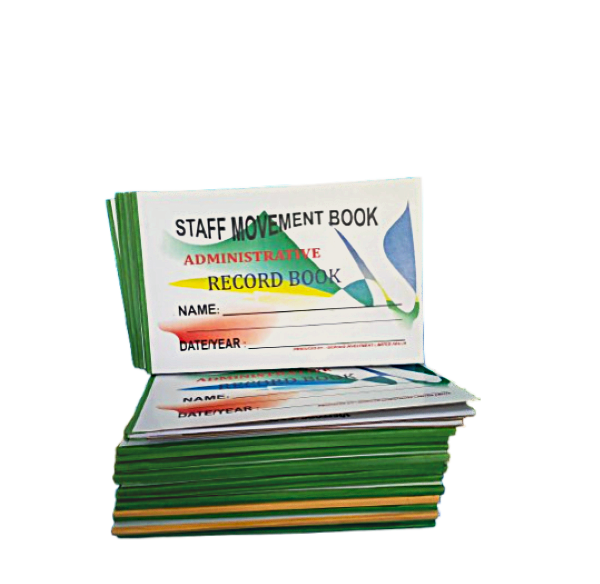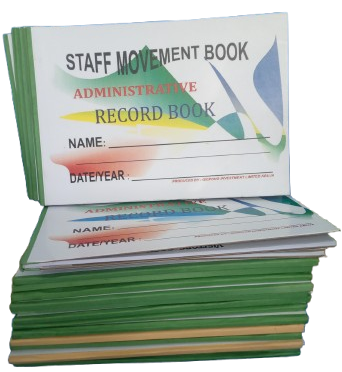The 10 Most Important School Statutory Record Books to Buy
Efficient and compliant school management hinges on proper documentation. In many educational systems—especially across Africa and parts of Asia—statutory record books are not just helpful tools, but legal requirements. These books form the foundation for transparency, accountability, and smooth administration. Whether you’re setting up a new school or upgrading an existing one, here are 10 essential statutory record books every school must have:

1. Staff Movement Book
The Staff Movement Book is crucial for monitoring the in-and-out movements of all teaching and non-teaching staff during school hours. It helps ensure accountability and safety within the school premises.
- Purpose: Track when staff leave or return during the workday.
- Importance: Useful during audits or incident investigations; promotes punctuality and discipline.
2. Staff Nominal Roll
This is a comprehensive record of all staff members, including their full names, designations, dates of appointment, qualifications, and contact information.
- Purpose: Maintain an up-to-date roster of all employed personnel.
- Importance: Required during inspections and for processing payrolls or promotions.
3. Admission Register
This book records the biodata and academic history of every student admitted to the school.
- Purpose: Capture essential student details such as name, age, date of admission, previous school, class placed in, and guardian details.
- Importance: Legally required in most educational systems; essential for data tracking and transfers.
4. Staff Attendance Register
Daily attendance of teaching and non-teaching staff is logged in this book.
- Purpose: Record punctuality and absenteeism.
- Importance: Aids in salary computation, leave tracking, and performance evaluations.
5. School Fees Ledger
This is a financial record that captures all school fee payments from students, including dates, amounts, and balances.
- Purpose: Monitor fee collection and outstanding payments.
- Importance: Critical for school budgeting, audits, and parental accountability.
6. Income and Expenditure Book
A vital accounting document that records all financial inflows and outflows.
- Purpose: Track how money is earned and spent by the school.
- Importance: Ensures financial transparency, assists in budgeting, and is crucial during audits or inspections.
7. Staff Duty Report Book
This book is used by staff on duty (often on a weekly rotation) to record observations, incidents, or notable activities during their assigned duty period.
- Purpose: Monitor school events, student behavior, emergencies, and special occurrences.
- Importance: Enhances internal communication and provides a record of incidents.
8. School Logbook
One of the most comprehensive and historical records in a school. It documents all significant school events chronologically.
- Purpose: Record daily happenings like visits from education officials, PTA meetings, inspections, or school celebrations.
- Importance: Acts as a historical archive; valuable for leadership handovers and institutional memory.
9. Reward Book
This book is used to document rewards given to students or staff for excellence in academics, sports, behavior, leadership, or other areas.
- Purpose: Encourage good behavior and academic excellence.
- Importance: Enhances motivation and serves as a record of merit-based recognition.
10. Punishment Book
All disciplinary actions taken against students are logged here, including the offense, date, type of punishment, and the administering staff.
- Purpose: Record behavioral issues and disciplinary measures.
- Importance: Provides legal and ethical protection; helps monitor repeated offenses and parental involvement.
Final Thoughts
Every educational institution must prioritize the purchase and proper usage of these statutory record books. Not only do they ensure legal compliance, but they also help maintain a well-organized, transparent, and efficiently run school environment. When buying, opt for standardized, government-approved formats (if applicable) and train staff to use them appropriately.
By keeping accurate and up-to-date records, schools can build a culture of responsibility, transparency, and continuous improvement.

